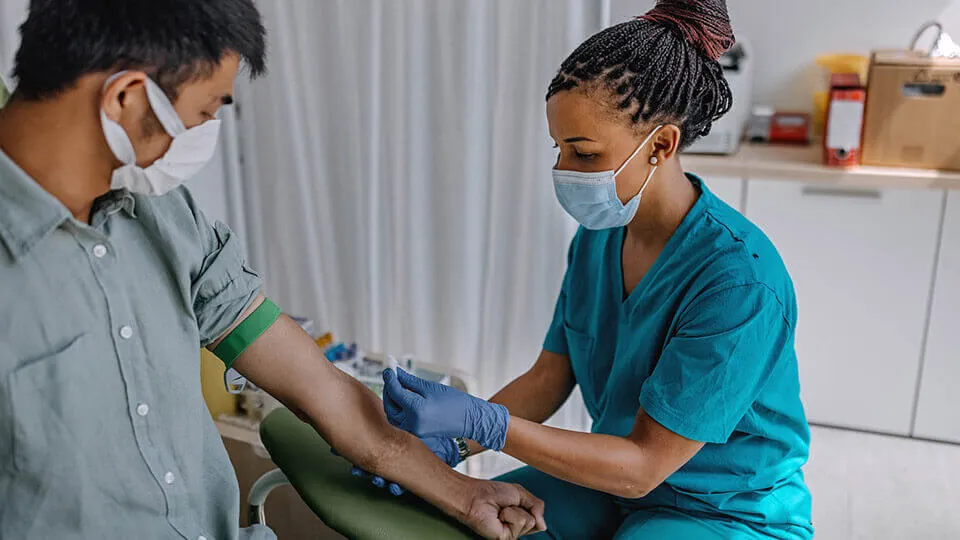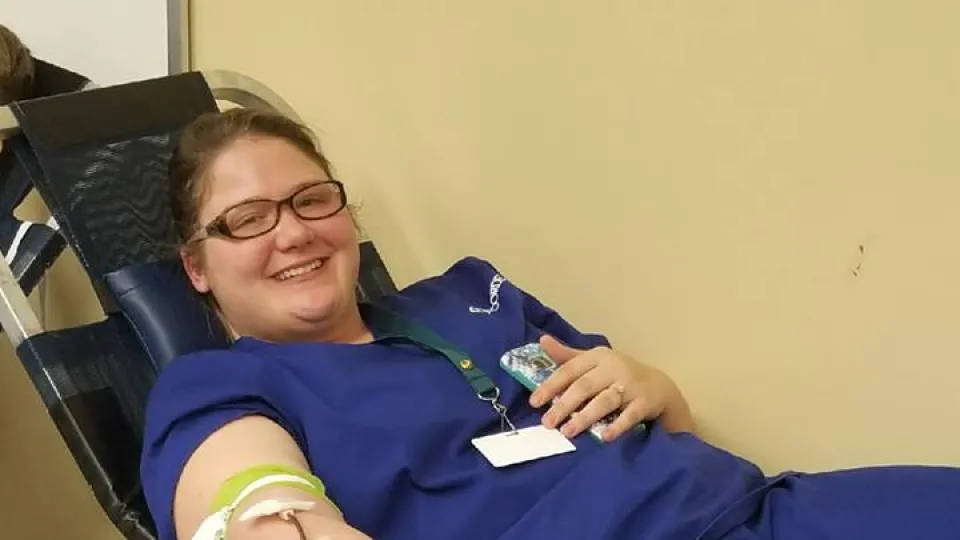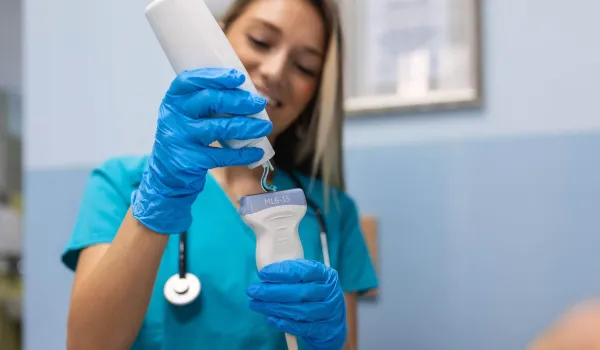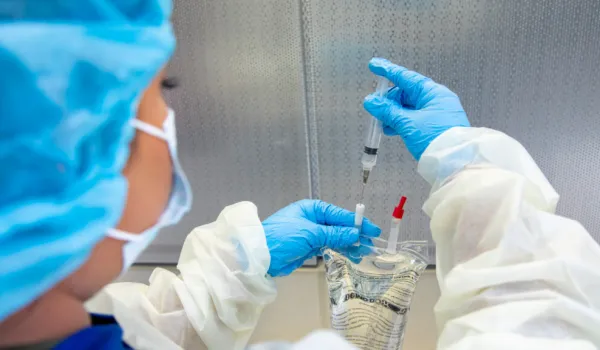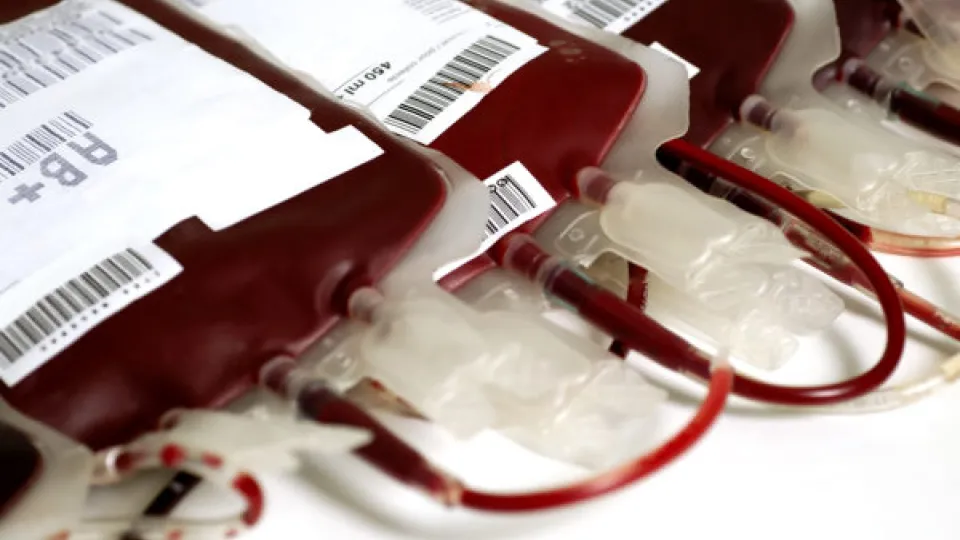
We've all got blood running through our veins, and while it might look the same to the naked eye, it's actually different from person to person. Each blood type or "group" has a specific set of inherited antigenic substances, such as proteins, glycoproteins, carbohydrates, and glycolipids, which make it unique. If the blood of different groups mix (during transfusions or otherwise), these antigens can trigger a person's immune system to attack and reject the new "invading" blood, causing sickness or even death.
In 1900 and 1901, Karl Landsteiner at the University of Vienna was attempting to uncover the cause of these failed transfusions and ended up discovering the common blood types we know today - a discovery that eventually earned him the Nobel Prize.
THE ABO BLOOD GROUP SYSTEM
This system is the most important blood group system used in human blood transfusion. It identifies four different common blood types that are determined by the presence or absence of certain antigens.
- Group A contains only the A antigen on red blood cells with the B antibody in the plasma.
- Group B contains only the B antigen on red blood cells with the A antibody in the plasma.
- Group AB contains both A and B antigens on red blood cells with neither A nor B antibodies in the plasma.
- Group O contains neither A nor B antigens on red blood cells but does contain both A and B antibodies in the plasma.
In addition to the A and B antigens, a third antigen called the Rh factor can be present (+) or absent (-) and also contributes to blood type. For example, this is why our blood is classified as A+ (A positive) or O- (O negative).
Interested In How To Become a Phlebotomist?
Click here to explore Phlebotomy programs near you!
BLOOD GROUP COMPATIBILITY AND UNIVERSAL DONORS/RECIPIENTS
It probably goes without saying, but physicians must be extremely careful when finding compatible blood types for transfusions. The list below explains which blood types are capable of cross-matching with other types.
- Group A can donate red blood cells to groups A and AB.
- Group B can donate red blood cells to groups B and AB.
- Group AB is the universal recipient, able to receive blood from all groups. However, they can only donate to other AB recipients.
- Group O is the universal donor, able to donate to all other groups. However, they can only receive from other O donors.
It is also important to note that, in general, Rh-negative blood is given to Rh-negative patients, while Rh-positive blood or Rh-negative blood may be given to Rh-positive patients.
What do Blood Numbers mean
"Blood pressure numbers represent your heart's health," said Hanna Hodges, BS, NCMA, MA/MOA Program Director at Concorde's campus in San Antonio, Texas.
Hodges said the first, or top, the number represents systolic pressure. That's the amount of pressure inside your arteries when your heart muscle contracts. The second, or bottom, the number is diastolic. That is the pressure in your arteries between heartbeats.
"These two numbers together show your provider a picture of how well the blood and oxygen are moving through the heart and can even help predict possible health complications," Hodges said. "Having a healthy lifestyle and regular exercise will help your blood pressure stay at a normal range."
Awareness behind the numbers
The U.S. government's Food and Drug Administration states that blood pressure usually varies throughout the day. For adults, a blood pressure reading of lower than 120/80 is considered normal. Readings between 120/80 and 139/89 are considered pre-hypertension. People with pre-hypertension do not have blood pressure as low as it should be but are not yet considered to have high blood pressure.
Your doctor might tell you that you have high blood pressure if you have two measurements of blood pressure readings, on physician office visits at least one week apart, that are higher than 140/90.
The U.S. Preventive Services Task Force has issued guidelines that state people with blood pressure lower than 120/80 should be screened every two years. Your doctor might determine that your blood pressure should be screened more frequently.
ROLE OF PHLEBOTOMISTS AND MEDICAL LAB TECHNICIANS
Phlebotomists, phlebotomy technicians, and sometimes nurses, are the experts who draw blood for testing and donations. A phlebotomist and phlebotomy technician must be comfortable working with people, taking blood for tests, and being around blood and other bodily fluids.
Medical lab technicians test and diagnose blood and body fluids using sophisticated biomedical instruments and computers. Through this process, they are able to determine donors' blood types so the blood can be used to help others. The roles of phlebotomists and medical lab technicians are vital to individual patients and to the health care industry as a whole.
Donating blood helps save lives. One donation can help save up to three people's lives. To see where you can donate blood, visit the American Red Cross website and locate a blood drive near you.
Take The Next Step Towards a Brighter Future
Interested in learning more about our Phlebotomy program?
We have a Concorde representative ready to talk about what matters most to you. Get answers about start dates, curriculum, financial aid, scholarships and more!


